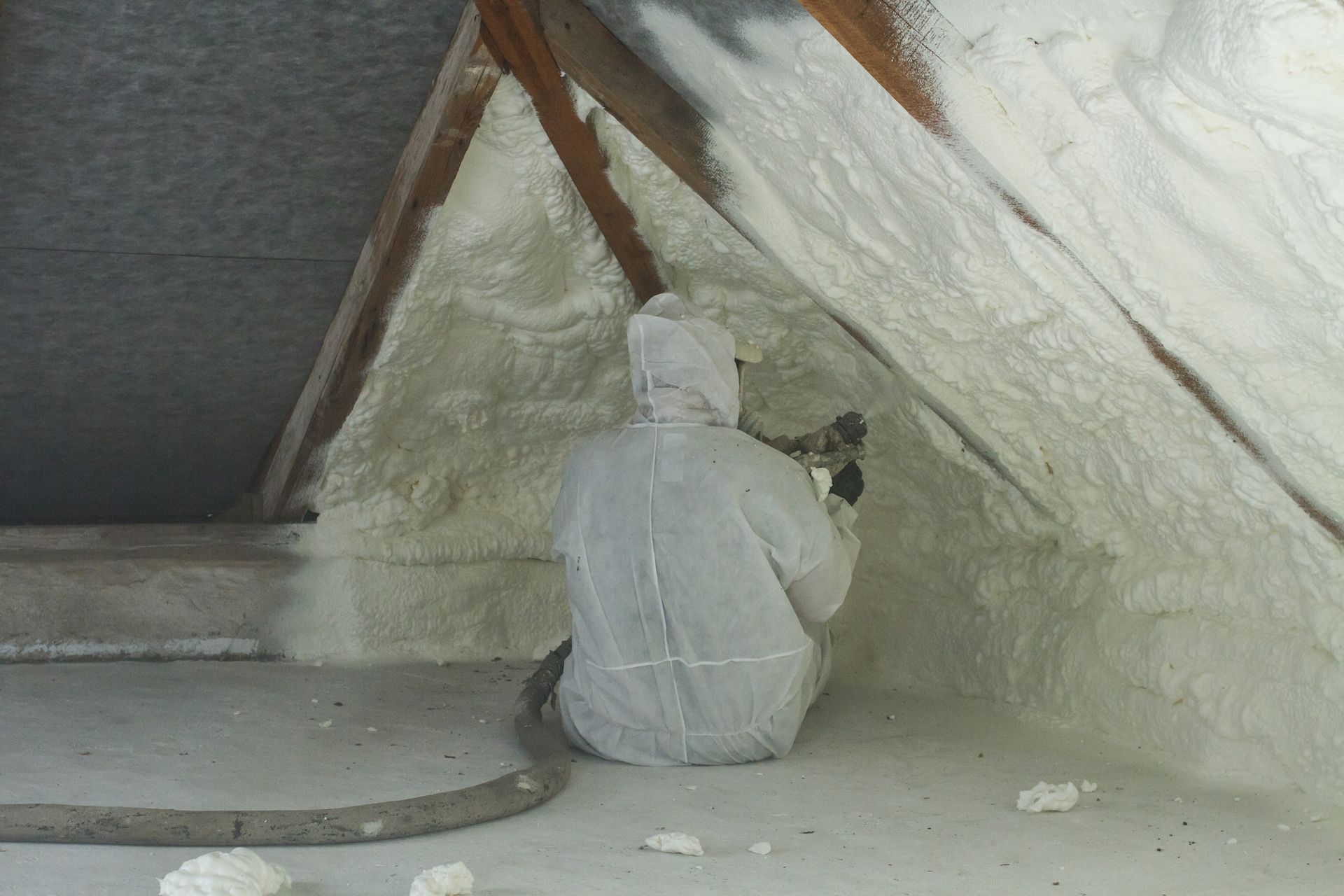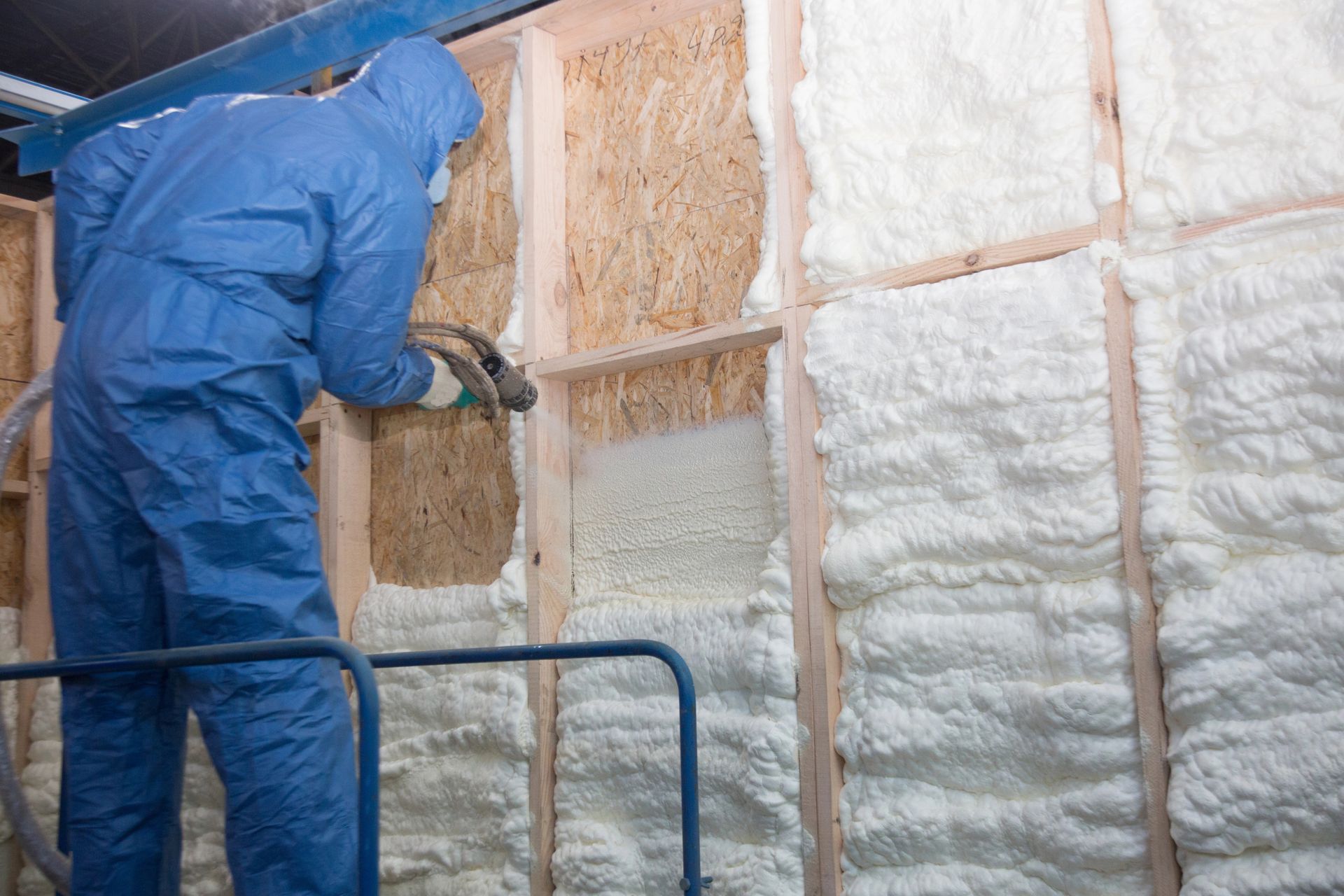DIY or Professional? Understanding Attic Insulation with Spray Foam
How To Insulate An Attic With Spray Foam Insulation in Kalispell, MT
Spray foam insulation is a premium solution for your attic, enhancing energy efficiency and comfort in your home in Kalispell, MT. But before diving in, you might wonder: Can you tackle this project yourself, or should you hire a professional? Let’s break down the process, costs, and considerations to help you decide.
Key Considerations Before Installation
Is Your Attic a Major Source of Energy Inefficiency?
If your home becomes overly hot in the summer, your attic might be the culprit. High temperatures in the attic can seep into your living spaces, forcing your HVAC system to work harder. In many homes, the attic is a significant point of energy loss and could benefit from additional insulation.
Do You Want Your Attic as a Conditioned Living Space?
This decision impacts whether you’ll insulate the attic floor or the roofline. Insulating the floor is ideal if you don't plan to use the attic as a living space, as it prevents heat from entering the home. However, if you intend to use the attic, insulating the roofline keeps the entire space, including HVAC ductwork, at a consistent temperature.
Do You Need to Remove Existing Insulation?
To create an airtight seal, any existing attic insulation often must be removed before applying spray foam. There are instances where we can install attic insulation over existing materials, but starting fresh ensures the best results.
Types of Spray Foam for Attic Insulation
Open Cell Spray Foam
Open cell foam is less dense and installed at greater depths, typically 7 to 12 inches. It creates an air barrier but requires additional vapor retardant coatings.
Closed Cell Spray Foam
Closed cell foam is denser and applied at depths of 3 to 6 inches. It acts as both an air and vapor barrier, making it more versatile for various applications.
Time and Cost
The duration of an attic spray foam installation varies based on preparation and project size. A small attic can be completed in a day if prepped properly. Larger attics may take two to three days, especially if old insulation needs removal.
The cost is influenced by the area to be insulated and the type of spray foam used. Insulating an attic floor is generally cheaper than the roofline. Closed cell foam is more expensive than open cell foam, and the thickness of the application can further vary the cost.
DIY vs. Professional Installation
Why Professional Installation is Recommended
- Material Requirements
DIY kits are costly and inefficient for large spaces. A single kit covers about 200 board feet, which is insufficient for most attics, making multiple purchases necessary and negating any cost savings.
- Ventilation Needs
Proper ventilation is crucial when applying spray foam to manage toxic off-gassing. Professionals use specialized equipment to ensure safety, something not easily replicated in a DIY setup.
- Accessibility Challenges
Attics can be hard to navigate and insulate thoroughly, especially with complex structures or heights. Professionals are equipped to handle these challenges effectively.
- Risk of Failure
Spray foam application involves precise chemical reactions sensitive to environmental conditions. Without the right tools to control these variables, DIY attempts can result in insulation failure, requiring professional correction.
Conclusion
Insulating your attic with spray foam offers significant benefits, including enhanced comfort and energy efficiency. While the initial investment can be high, the long-term savings and improvements make it worthwhile. Given the complexity and potential risks, professional installation is generally recommended to ensure optimal results.
Call Flathead Spray Foam today for a free quote for your attic in Kalispell, MT: (406) 319-3339.



